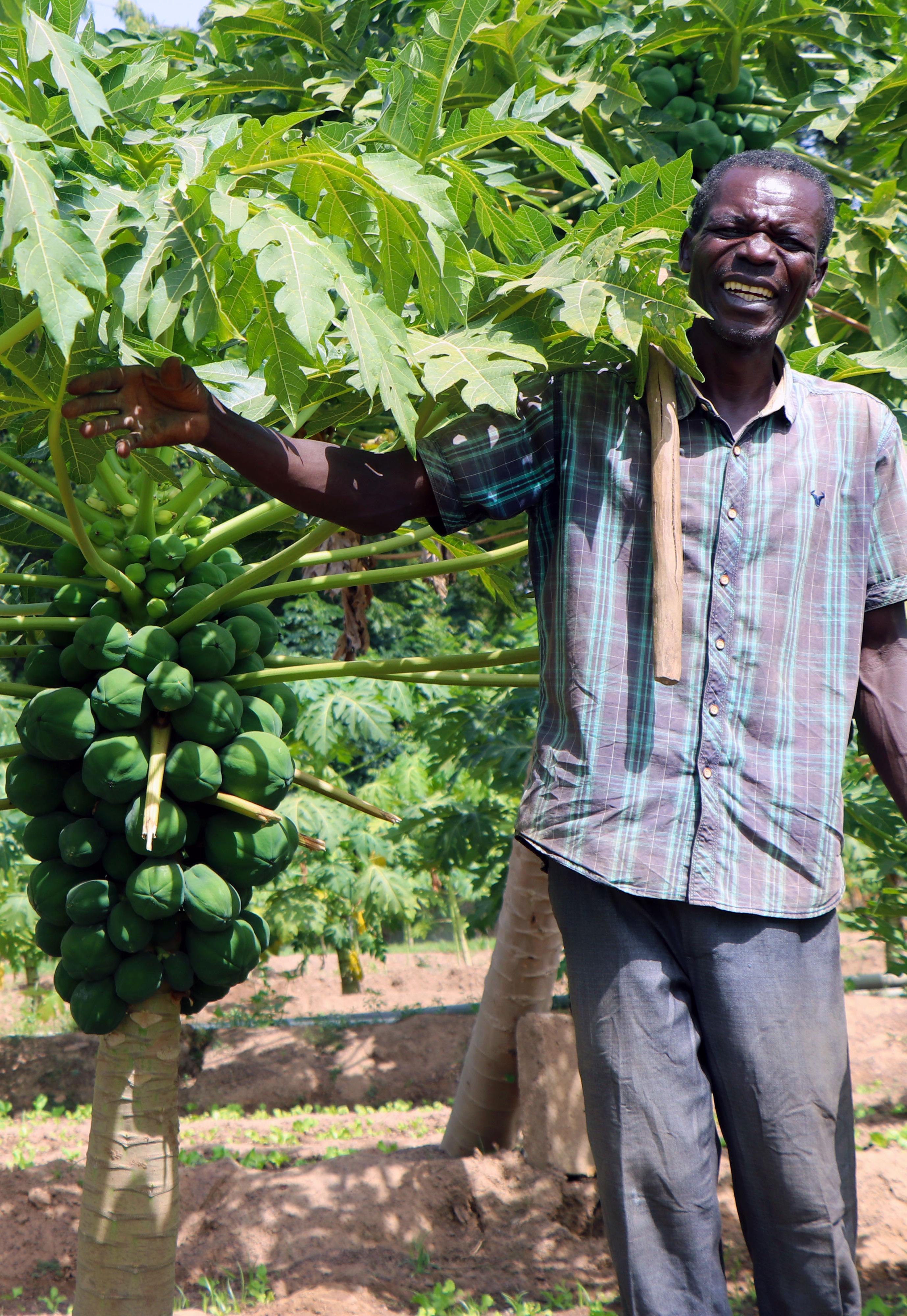
4 minute read
Liquid Gold
In one of The Salvation Army’s newest territories, we visit a project where liquid fertiliser is proving to be a priceless asset for small-scale farmers.
Burkina Faso means ‘land of honest men’ and is a country with a rich cultural heritage. A landlocked country in West Africa, it is bordered by Mali, Niger, Benin, Togo, Ghana and the Ivory Coast and is endowed with massive significant reserves of gold.
Advertisement
Like other countries in the Sahel region, Burkina Faso is prone to drought, floods and encroaching desertification. These climaterelated events negatively affect the country’s smallholder farmers who rely mostly on the rains to produce staple grains and raise livestock for their sustenance. With minimal and irregular rainfall patterns, the farmers can hardly produce enough to support their families.
In this religiously diverse society, where Islam is the dominant religion, The Salvation Army has been working alongside rural farmers supporting them to adopt farming methods which are more resilient to the effects of the changing climate. The farmers learn together about simple farming practices that sustainably increase crop yields as well as conserve their environment. Using a ‘learning-by-doing’ approach, the farmers share their indigenous farming knowledge, and modify and experiment with the agricultural techniques learnt. Once they realise success, the farmers can continue improving year by year and go on to train others. In this way, their knowledge is shared widely, impacting many more farmers and this is passed from one generation of farmers to the next.
In a country with one of the highest population growths in the world, the demand for food is immense. The pressure on farmers to produce adequate food is often challenged by the deteriorating health of their soils. Farmers in Burkina Faso, however, are investing in improving the health of their soil by adding compost and organic liquid fertiliser. The liquid fertiliser is made using green matter, some animal manure, ash, soil and water.

The mixture is allowed to decompose over two weeks and is given a stir every day for 5-10 minutes producing a ‘sauce-like’ solution. This is then applied to the plants instead of using mineral fertiliser, saving farmers lots of money. Using this very easy to produce liquid fertiliser, the farmers have continued to increase their production, producing enough food for their families.
The farmers who have taken part in training with The Salvation Army reflected on the difference it has made to the way they work.
Sande Coulibary is a 57-year-old mother of four children. She depends on her vegetable garden – on which she grows onions, tomatoes, eggplants (aubergines) and cabbage – to feed her family. According to Sande, one of the challenges she faced was having enough money to purchase fertiliser to apply to her crops. However, Sande along with others from her village have started using liquid fertiliser and making compost at their farms.

Sande reflected on the progress she has made since she joined The Salvation Army’s agricultural project:
‘I am no longer the same. I can produce liquid fertiliser, make compost and use natural pesticides on my crops. I have shared my knowledge with my whole family and six other families in my village. My cabbage garden looks healthy.’
Sande is very confident and hopeful for the future. She anticipates continuing to expand her vegetable garden so that she can produce surplus to sell in her local market.
Karambiri Issouf is a 62-year-old father of nine children. He lives in Dande village in Burkina Faso and he grows rice, maize and other cereals.
Karambiri shared that since he started applying liquid fertiliser and compost in his field, he has experienced an increase in the production of his crops. He said, ‘Before I spent a lot of money purchasing chemical fertiliser,
but since learning how to use liquid and compost fertiliser I now have money to spare which I use to pay for my children’s school fees.’
Karambiri also said that he is now sharing his knowledge with 15 people in his community to help them experience the positive change that he has had. Reflecting on the future, he said, ‘I am really hopeful for the future since I can now produce enough for my family.’
Nikiema Dieudonne is 48 years old. He has six children and lives in Koubri village in Burkina Faso. With the income from his farming, Nikiema can feed his family and pay school fees including university fees for his first-born child.
Nikiema reflected that he has often had to take a loan to buy seeds and fertilisers to grow his crops. ‘A bag of fertiliser costs about $35 (US),’ he said. ‘It is very expensive and if you do not have a good harvest you are in debt.’
Nikiema and his community have recently learnt how to make liquid fertiliser and a natural solution to use as pesticides against the infestation of termites in their gardens. According to Nikiema, this has saved him money which he would have used to purchase chemical pesticides. He shared how productive his pawpaw garden has become and said, ‘I am hopeful that my pawpaw trees will continue producing more fruits which I can sell.’
Throughout the training, farmers learnt to make compost and fertiliser using materials available in their immediate environment. As the trainees go on to share their knowledge with others in their community, the use of local materials will mean this method of improving crop yields is accessible to all.
This project falls within our ‘Food Security’ theme and is an example of the kind of project that will be supported by money raised through this year’s Helping-Hand Appeal. For more information about this year’s appeal, read the article on page 25of this magazine, and visit www.salvationarmy.org.uk/feedinghope
By Violet Ruria


